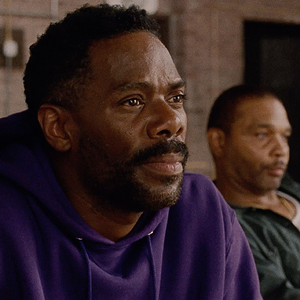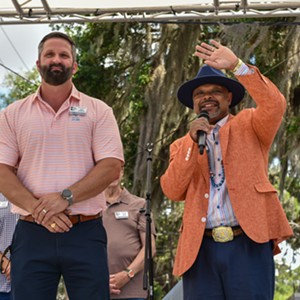IF YOU want to get an interesting conversation started in Savannah, mention something about bachelorette parties.
Almost invariably, the person you’re talking to will have some clearcut opinions about the “Woo Girls” and their now-ubiquitous weekend presence north of Jones Street — a natural habitat range which will almost certainly spread south from the historic district.
To be clear: There are many, many worse problems for us to have.
Ours is a town where the front-page news is often of a triple murder, or of bullets grazing a small child, or of yet another boondoggle involving taxpayer money, or of yet another public figure under some kind of indictment or investigation.
It’s frankly a relief to get a chance to talk about something as completely benign and harmless on the surface as a bachelorette party.
I’m a student both of human nature and also of tourism, so I’ve never been unduly worried about the bachelorettes themselves — other than the fact that it's much harder to get a drink when they come through the door and hit the bar like it’s Omaha Beach.
I’m interested in them for what their ubiquity says about the changes going on in our little neck of the woods.
And the key thing is that these changes aren’t going on just in our little neck of the woods alone.
This may be the first and last time you see me quote a BuzzFeed article. But BuzzFeed Senior Culture Writer Anne Helen Petersen’s March 28 piece, “How Nashville Became One Big Bachelorette Party” is essential reading for anyone living in Savannah, considering moving to Savannah, or considering opening a business in Savannah.
Comparing Nashville to Savannah is in a sense apples to oranges; Nashville is not only a much larger metro area, but also a state capital and a major center of the entertainment industry.
But both Southern cities are similarly blessed with a clearly identifiable individual identity, an identity which both attracts development and is also the thing most threatened by said development.
I urge you to read the article and take note of its cautionary tales, which have to do with much larger issues than simply a group of friends having fun celebrating another good friend’s wedding.
Perhaps the most interesting thing about our Woo Girls — other than the intriguing way two bachelorette parties manage to achieve détente when they both find themselves competing to occupy the same bar — is that they could literally be doing the same thing anywhere.
A friend pointed out that, for all Savannah’s popularity with bachelorette parties, it seems that not a single member of these parties shows the slightest interest in our history, culture, or architecture.
In modern tourism, it’s not so much about the place, but about “the experience.” To quote the BuzzFeed piece:
“Like Austin or Portland, the draw to Nashville isn’t to go and be a tourist, but to go and spend a weekend sort of pretending that you live there — and, who knows, maybe one day make it a reality, and bring your friends and business along with you.”
Make no mistake: The people whose job it is to encourage tourism, such as Visit Savannah and its equivalent in other destinations, are well aware of the latent economic and political power inherent in the humble bachelorette party.
While it’s trendy to bash the bachelorettes as ditzy airheads and embarrassing throwbacks to a less-liberated age of women’s non-agency, the Woo Girls in a sense hold all the power.
The article says “the most common iteration” of that sought-after experience is “deceptively destructive, and usually involves ‘living like the locals’ (staying in neighborhoods, eating in neighborhood spots) without any of the constrictions (not wanting to disturb neighbors, not inconveniencing others, not taking up more space than necessary) that accompany actual residency. Nashville — or whatever city they’re visiting — becomes their playground.”
Weaponizing Instagram, Uber, and Airbnb, the bachelorette party industry represents a potent economic force which just happens to fit almost seamlessly into the marketing plans of Chambers of Commerce around the country and the deep-pockets developers they cater to.
(Because of Airbnb, local realtors associations have now essentially become cheerleaders for the tourism industry as well — another of the many far-reaching effects of this phenomenon.)
The larger issue, Petersen writes, “is one few will articulate: What does this influx of young, moneyed women, and the web of industries that have popped up to cater to them, suggest about the town that Nashville is rapidly gentrifying into? And what might it signal about the future — and the impact — of intranational tourism throughout the US?”
There’s a sardonic old joke about new subdivisions usually being named for the thing that had to be bulldozed to make room for the subdivision: Meadow, Glen, Forest, Woods, Brook, Creek, etc.
In the end, just as each subdivision is nearly indistinguishable from any other, each hot new tourist mecca seems to end up looking just like the last one.
The end result is homogenization, gentrification, disruption, and the loss of local identity as the true locals can no longer afford the place, and find themselves jilted and dumped for new suitors.
The danger, as always with Savannah, is the tendency not only to sell out, but to sell ourselves short.
You see, these millennial bachelorettes will soon be celebrating baby showers.
They’ll soon want nice houses to raise those children in, and freshly equipped new kitchens to cook meals for their new families in.
Our heavy investment in new upscale cocktail bars and coffeehouses and small-plate restaurants with great craft brew lists is definitely a lot of fun now, but it may or may not prove wise in the long run.
Full disclosure: I’m in the tourism business too.
For the past decade I’ve written a line of travel guidebooks about Savannah, Charleston, the Carolinas and Georgia.
So I have a personal, vested interest not only in the local tourism industry being lucrative, but in it being sustainable.
Short-term profit is great, but long-term, sustainable profit is much better.
The way we ensure our long-term profit into the future is to keep Savannah as much like Savannah as we can.
One of the great things about Savannah is that it is a true world-class party town.
The key is to keep it from turning into Any Party Town USA.
The lessons are already out there for us to learn from.



























